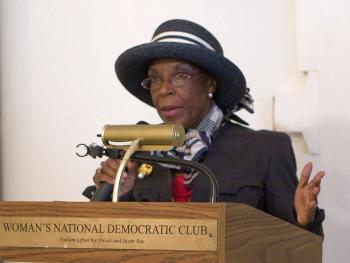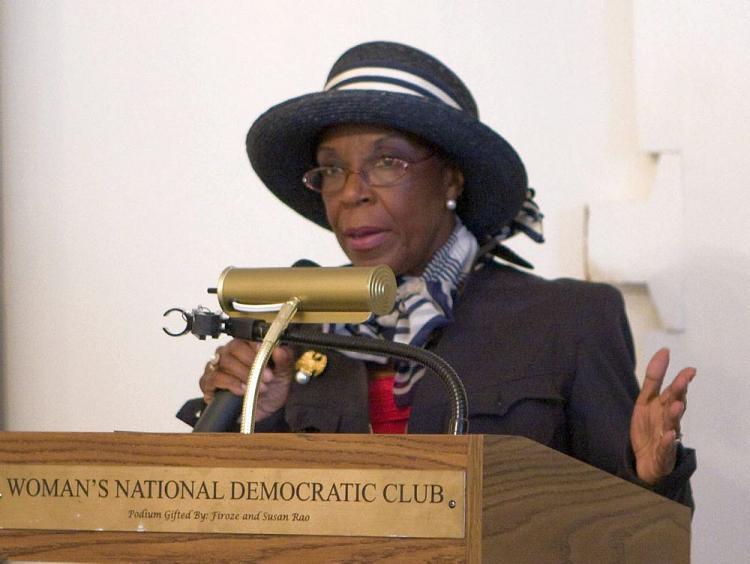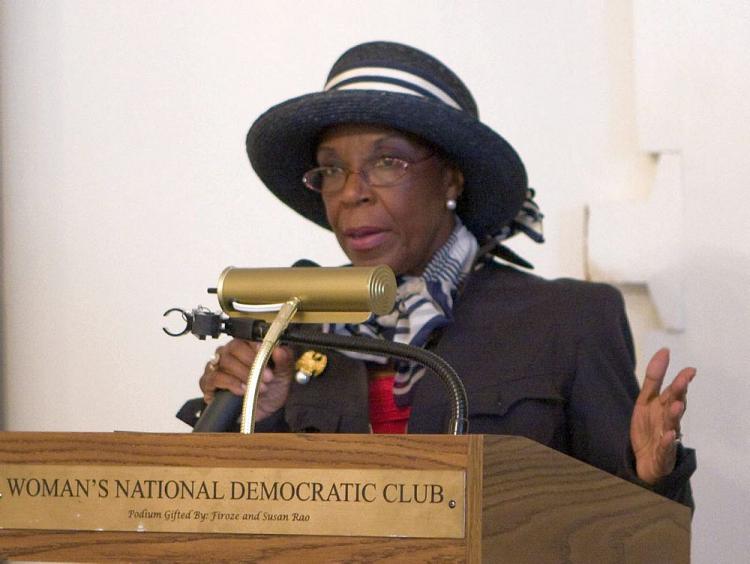WASHINGTON—With the 2010 World Cup currently underway in South Africa, roughly 8,255 miles away in Washington, D.C. a group of women gathered to discuss judicial reform in the less wealthy and developed nations in Africa. On June 22, the Woman’s National Democratic Club hosted Mary A. Gooden Terrell, retired associate judge of the superior court in the District of Columbia, in a discussion of her work on international judicial training in Africa. She also spoke on her local initiatives, including the founding of High Tea Society for elementary and junior high school at-risk girls in Washington, D.C.
Former Judge Helps Bring Judicial Reforms to African Countries
Woman’s National Democratic Club hosted Mary A. Gooden Terrell, retired associate judge of superior court in District of Columbia.

Former judge of the superior court in the District of Columbia Mary A. Gooden Terrell has traveled widely in Africa to advise legal professionals on their legal and judicial systems. Judge Terrell spoke June 22 at the Woman�¢ï¿½ï¿½s National Democratic Club in Washington, D.C. Lisa Fan/The Epoch Times
|Updated:



